College of College of Graduate Studies
Using the spirit-level as a method of balance
The 21st of July 2021 would have been the 100th birthday of the late Sanusi, Vusamazulu Credo Mutwa—Healer, Poet, Sculptor and Author. To showcase and honour the indigenous knowledge system of Mutwa, Unisa’s College of Graduate Studies (CGS) hosted a community engagement (CE) indaba.
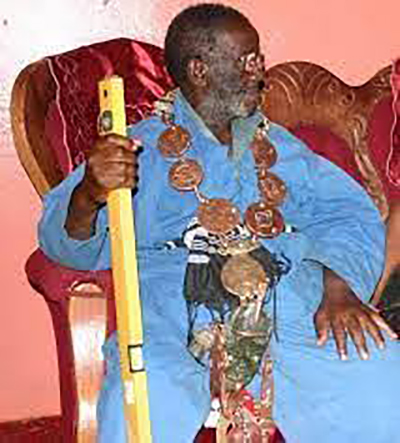
Sanusi, Vusamazulu Credo Mutwa, Healer, Poet, Sculptor and Author
The spirit-level/waterpas is used as a figurative tool for measuring in constructions. Similarly, it is used as a method of balance in someone who is a Sanusi and applies the ontological-spirit as a tool of seeking balance. It is from this theoretical analysis of what is seen and observed in Credo Mutwa’s vast and complex indigenous knowledge that the indaba sought to seek balance and social cohesion between the public intellectual (herein indigenous knowledge holders) and a scholar (the academy).
Developing, promoting, protecting and practising indigenous knowledge systems
The CE Indaba comes at an opportune time where the imperative need to redress the injustices of the past is alive, in this regard, in the transformation of the academy through decolonisation, Africanisation and indigenisation.
Professor Thenjiwe Meyiwa, Vice-Principal of Research, Postgraduate Studies, Innovation and Commercialisation, said that the conversations on the CE indaba is what lies at the heart of Unisa’s broad strategic imperatives and by extension CGS’ Credo Mutwa project in developing, promoting, protecting and practising indigenous knowledge systems in the fashion that Baba Credo Mutwa advocated. “Let us balance our souls and spirits as we intently transform our outlook and revive identities. Let us celebrate iSanusi Baba Credo Mutwa, an indigenous knowledge intellectual architect of note,” said Meyiwa.
Meyiwa also commended the CGS team under the leadership of Professor Patrick Ngulube and the guide provided by Dr Tebogo Kgope under the auspices of one of the college’s engaged scholarship projects, known as “The indigenous knowledge guild of Credo Mutwa: a pedagogical challenge to higher institutions of learning” hence the theme, “The spirit of Credo Mutwa: using the spirit-level as a method of balance”.
The CE project leader, Kgope, attests that steps to these frames of indigenisation ought to show how Africans love themselves, that there is reverence for knowledge that comes from the global South which is rich in marginalised and silenced ways of knowing. “The Sanusi Credo Mutwa’s indigenous knowledge is vast and complex; however, it is not without any mechanisms that can permeate all spheres of life and disciplines which were colonially constructed for academic purposes,” she said.
The CE is conceptualised from the calls for institutions of higher learning and the constant use of terms such as an African university, decolonisation and indigenisation but with limited application and recognition of their very own and local African intellectuals. Mutwa asserted that “history should not be thrown away like an old pumpkin, history should not be mocked or scoffed at” and, therefore, as the seer and deep knowledge keeper, Mutwa’s indigenous knowledge should not be thrown away; it should be recognised.
Distinguished guest speakers
CGS warmly welcomed two distinguished guest speakers, South Africa’s poet laureate, author and former chairperson of the Credo Mutwa Research Group, Professor Mongane Wally Serote and Gogo Aubrey Matshiqi, a healer and an independent political analyst. Their purpose was to honour and speak about the theme: The spirit of Credo Mutwa: using the spirit-level/waterpas as a method of balance in assessing and evaluating the academy as a transforming space towards the desired African university.
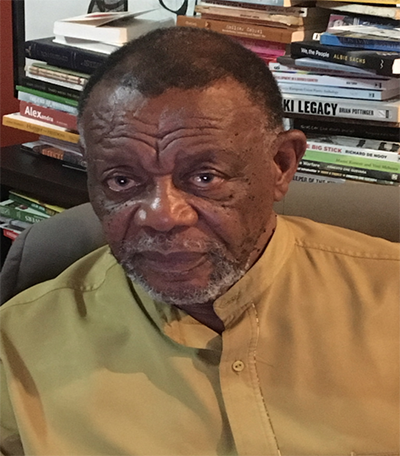
Prof Mongane Wally Serote
Serote embraced the goals that the CGS Credo Mutwa’s CE project seek to achieve by highlighting that “Credo gave us an immense knowledge system to reference”. Serote also warned that this will not be without any resistance or oppositions. Gogo Matshiqi reverberated the words of the late Sanusi when he said Mutwa had initially cautioned that “South Africa can go to hell for all he cared”, he too, Gogo repeated the same words that “South Africa must go to hell” because it has not reconciled with the spirit of the Mutwa. Gogo added that when the Sanusi transitioned to his final days on earth he was an angry spirit that was not listened to and recognised. With these words the healer and independent political analyst also said to date there exists no African universities but universities in Africa.
We who are spiritually gifted
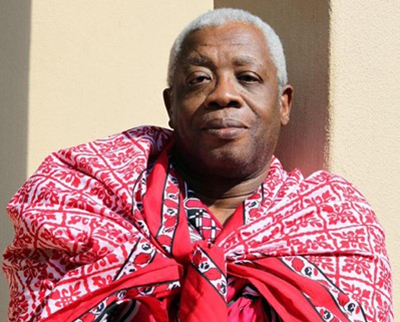
Gogo Aubrey Matshiqi
One of Unisa’s gems, Natalia Molebatsi, a South African writer, performance poet and cultural worker and library marketing co-ordinator, was the master of ceremonies for this indaba and the indaba was blessed with one of her world-renowned poems, echoing words such as “rona bana ba moya – we who are spiritual gifted”.
In his closing remarks, the Acting Executive Dean of the College of Graduate Studies, Professor Patrick Ngulube, said the “indigenous knowledge system of Baba Credo Mutwa speaks to our contexts and reality that we should not allow ourselves to lose our indigenous ways of knowing, thinking and doing things. Coming together is going to build the social cohesion of the academy and society. We will be able to level the playing ground as the western knowledge system dominates and underestimates the indigenous knowledge system.” The CGS CE Manager, Professor Khanyisile Mbatha, was also thanked for giving this noble project a space in the University of South Africa, particularly in the College of Graduate Studies.
*By Hanli Wolhuter, Communication and Marketing Specialist, College of Graduate Studies
Publish date: 2021-09-21 00:00:00.0


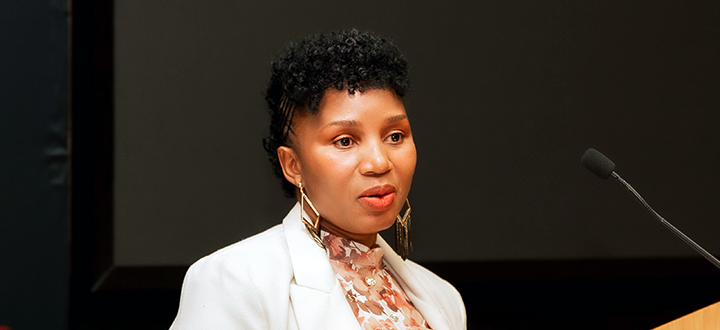 Wings of opportunity: Bringing drones into the classroom
Wings of opportunity: Bringing drones into the classroom
 Visionary youth champion to address Unisa’s Innovation Festival
Visionary youth champion to address Unisa’s Innovation Festival
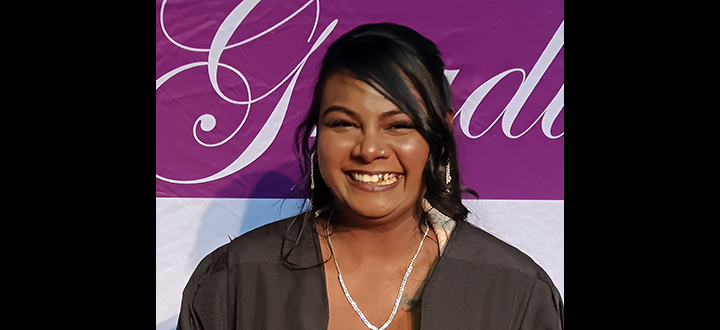 Finding the strength to persevere
Finding the strength to persevere
 Disability awareness at Unisa: Disability is not inability
Disability awareness at Unisa: Disability is not inability
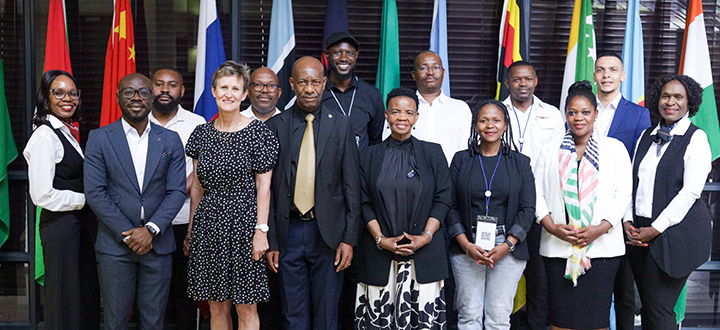 Unisa symposium shares knowledge on building SA's aviation economy
Unisa symposium shares knowledge on building SA's aviation economy